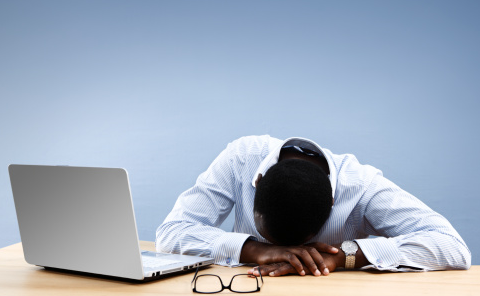you’d think that since our bodies are made up of more than 70% water we wouldn’t need to drink as much as our doctors recommend (eight 8-ounce glasses daily), but that’s simply not the case. We lose water by the most mundane activities, including breathing, talking, and laughing, so it’s important that we replenish any liquid lost.
If you’ve experienced any of the following 15 symptoms, your body may be telling you to drink more water:
1. Extended Sickness: The toxins inside of us are expelled through the waste we secrete. Waste can only be shot out of our bodies if we have enough fluid to transport it to the toilet. However, reduced water levels will allow the toxins to set up base in our organs for much longer so shooing away viruses and bacteria becomes increasingly more difficult.
2. Dark Urine: The shade of our urine can be an indicator of a number of different health conditions, from urinary tract infections to liver problems. But the color most associated with urine – dark yellow – is actually a sign that you’re not maintaining healthy hydration levels. Dark yellow pee is more concentrated since our bodies cannot afford to expel water to dilute the chemical compounds and toxins, giving it a darker, unhealthier hue. Clear to bright yellow urine means you’re drinking enough.
3. Sporadic Headaches: Although the link between dehydration and headaches is currently unknown, scientists believe that when our body’s water level drops to dangerously low levels, our blood volume will soon follow suit which restricts the amount of blood flowing to our noggins. This, in turn, causes our blood vessels to expand which can lead to headaches, lightheadedness, and even vertigo.
4. Charley Horses: When was the last time you were jolted awake in the middle of the night from a sudden muscle spasm wreaking havoc on your calf? Well, if you want to prevent this horrific pain ever again, you need to consume more water. Charley hoses are increasingly more common in athletes who overuse a single muscle, but it can even occur in people who lack physical activity as well as hydration.
5. Hunger after Eating: The part of our brain that lets us know that our tummies require nourishment is the same part that’s telling us that we’re thirsty. If you find yourself feeling hungry moments after eating a hearty meal, your brain might confusing thirst with hunger. Don’t fall for seconds or thirds; instead, fill up on water and check whether your stomach’s still a-rumblin’.
6. Digestive Problems: Even though you may not want to hear it, the insides of our bodies require mucus as a natural lubricant to keep things moving smoothly. This is especially true for our digestive systems which are lined with mucus. Not having enough water will thin it down, possibly leading to major internal damage as our stomach acid slowly penetrates the thin lining.
7. Constipation: Following the previous point, water which strengthens the mucus lining throughout our digestive system will keep… things flowing smoothly. Without proper hydration, our colons won’t be fully lubricated and allow waste to pass painlessly. The result is an uncomfortable feeling that can last for days. Before taking constipation medicine, try and consume more water. If the problem persists, you may need to schedule an appointment with your doctor.





















